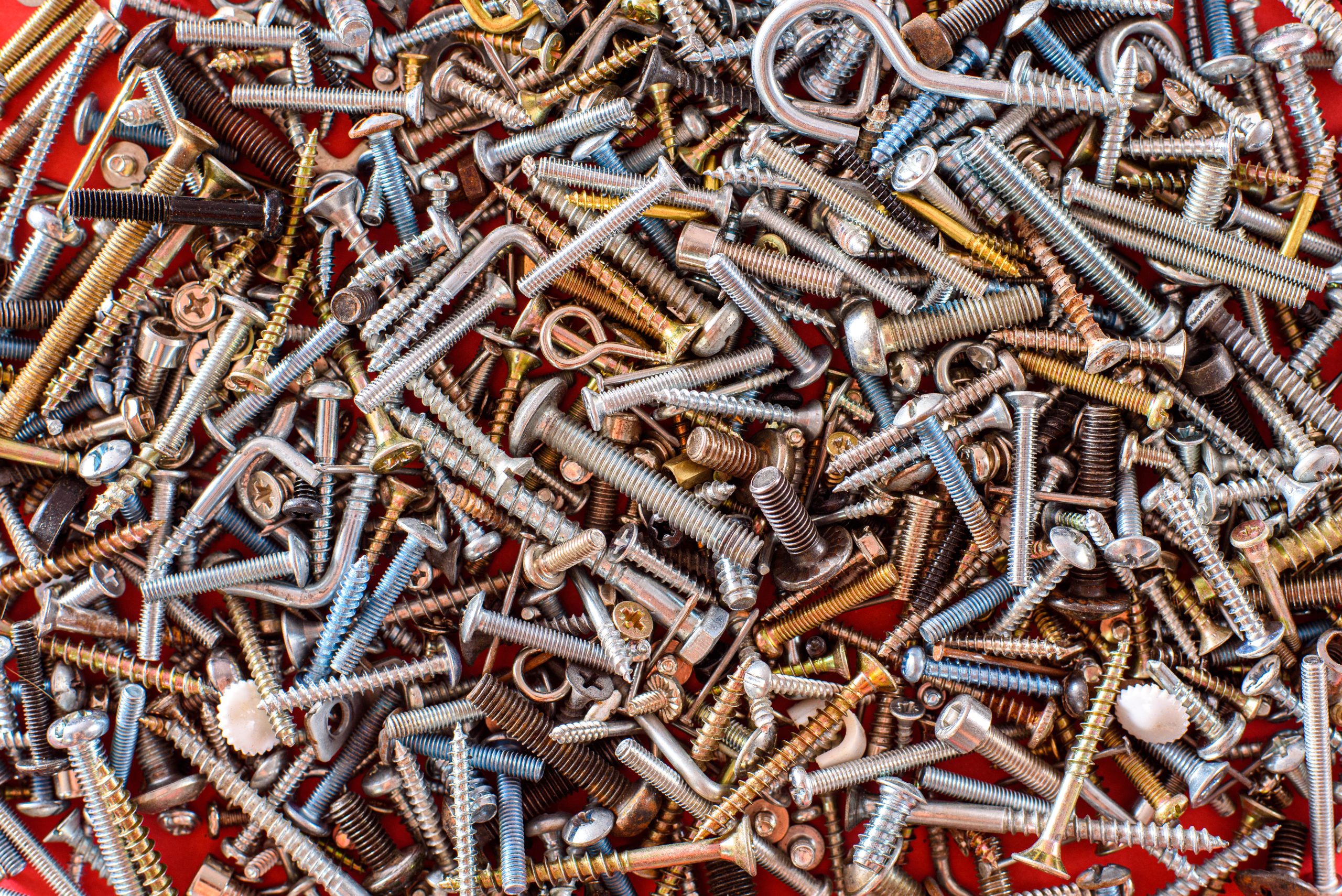
One question we get asked a lot around here is, “what type of steel fastener is better for my application?” The question refers to steel vs. stainless steel because they are different. Let’s see why.
Steel is an alloy made out of iron and carbon. The carbon percentage can vary depending on the grade – it’s mostly between 0.2% and 2.1% by weight. Though carbon is the main alloy material for iron, some other elements such as tungsten, chromium, and manganese can also be used to determine the hardness, ductility and tensile strength of steel. Heat treatment is a process which changes the mechanical properties of steels. This will affect the ductility, hardness and electrical and thermal properties of steel.
If we compare the strength of both steel and stainless steel, we should overlook the general misconception that one is stronger than the other. Stainless steel has a low carbon content which cannot be hardened, and regular steel is slightly stronger than grade 2 steel, and at the same time it is significantly weaker if compared in the terms of hardness. Both steels can have magnetic properties, but stainless steel is usually nonmagnetic. Some types of stainless steel are magnetic, except Series 3xx and 4xx. Such a type of stainless steel is cheaper, and does not normally have any addition of nickel. When compared to stainless steel, steel is magnetic.
Stainless steel is different from other steel alloys because it doesn’t corrode or rust. Stainless steel is different from carbon steel due to the amount of chromium present. It contains minimum 10.5% to 11% chromium amount by mass, forming a chromium oxide layer which is inert. This is the reason for non-corrosive, anti-rusting attributes of stainless steel. Other than this, it has the basic properties of steel, as mentioned above.
So which steel fasteners are best for your application?
Stainless steel is easy to fabricate and has a pleasing, aesthetic appeal. These properties, coupled by the fact that stainless steel has hygienic properties, makes it popular for consumer products and items that are used in food preparation and healthcare such as cookware and appliances, as well as, surgical instruments and hospital equipment.
Steel is the most common fastener material because it is strong and inexpensive when compared to stainless. Steel fasteners are available plain, as well as, with various surface treatments such as zinc plating, galvanization, and chrome plating. If aesthetics are not particularly important and the finished product will not be exposed to prolonged moisture, a carbon steel fastener would be a good choice for a commercial or industrial product for which function is more important than form – an application in which it simply has to work well, and not necessarily be the prettiest fastener.
Carbon steel fasteners have high strength and are commonly used for bolting oil and gas pipelines, structural joints, shipbuilding, and automotive products, to name a few. Carbon steel fasteners are often supplied with industrial PTFE coatings for applications which demand strength and corrosion resistance with cost-efficiency.
Got questions about stainless steel vs. steel fasteners? Contact the steel alloy specialists here at Electronic Fasteners to ensure you select the right fasteners for your application.

